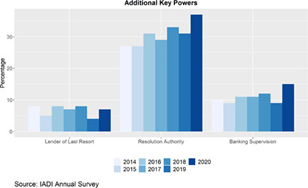Japanese firms keen on M&A in Vietnam A busy year for M&A activities Five to eight banks to be merged in 2012
In response to comments that the roadmap for restructuring the banking system is progressing too slowly, Nguyen Viet Thinh, Senior Advisory Manager at Pricewaterhousecoopers (PwC) Vietnam said many of the successful deals have not yet been announced.
These banks do not only merge with each other and change their name, he said, explaining that they buy and hold dominant shares in other banks and become involved in their management before officially announcing the merger.
Thinh attributed the increase in M&A deals in the banking sector to the orientations of the State Bank of Vietnam (SBV).
In addition, M&A deals in the banking sector are now much cheaper than two years ago, he said.
However, economists said if the two sides were forced to make the deals, they would have to pay a high price, which is also a factor causing concern among major banks.
Chairman of the Vietnam Joint Stock Commercial Bank for Industry and Trade (Vietinbank) Pham Huy Hung said his bank will only make a deal after carefully evaluating the assets of the banks they intend to buy, as a variety of problems are expected to emerge after the deal is sealed.
Depark Mistra, the World Banks’ chief economist in Vietnam, warned the SBV of the slow process of M&A deals and proposed speeding up the restructuring of weak banks.
It is also advised to consider M&A carefully to avoid unexpected consequences.
PwC CEO Dinh Thi Quynh Van claimed the weakness of banks is due to their low liquidity.
If liquidity risks are not effectively managed, M&A deals are likely to create “unhealthy” banks, she said. Van also said that settling bad debts is at the core of any M&A deal. She suggested establishing debt trading companies or excluding bad debts before merging.
M&A deals can only make the banks stronger if bad debts are settled, she said.



























